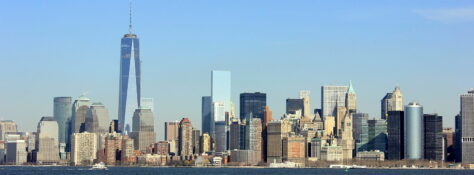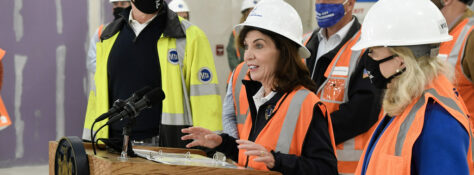As we ring in the new year, New York City welcomes a new City Council to preside over its districts. Bills that did not pass in 2021 were filed for end of session, and must now be reintroduced to the new City Council this month. These bills are crucial to preserving the health and prosperity of its people and environment for decades to come, and must be the top priority of each and every council member.
Learn MoreWith the incoming class of new Councilmembers set after the 2021 general election, the city is turning its attention to the City Council Speaker’s race. The speaker is an incredibly important role, able to control what legislation is voted on in the council, appoint committee chairs, and have a major say in the NYC budget among many other powers.
Therefore, the future of the environment and our fight against climate change in NYC will lie heavily on the shoulders of the next speaker. NYLCV strongly believes that the next speaker will need to be an environmental champion that takes bold and progressive actions to help us reach many of the goals and commitments we have made to reduce greenhouse gas emissions, protect open spaces and natural resources, value public health, and expand transportation alternatives to automobiles.
Learn MoreJoin us for our 2021 Westchester Cocktail Party on Tuesday, December 7th from 6-8pm at Reid Castle at Manhattanville College. This year we are thrilled to be honoring Joule Community Power.
Learn MoreAs soon as Kathy Hochul was sworn in as Governor it became clear that she would be consciously implementing an environmentally-focused policy agenda. New York State (NYS) has some of the most ambitious goals in the country, outlined in the Climate Leadership and Community Protection Act (CLCPA), and Governor Hochul has shown that she is working to ensure that those goals are met. Now, at the three-month mark of her tenure, we review some of the exciting advancements in New York State’s fight against climate change.
Learn MoreThe deal secures an investment of $1.2 trillion, some of which will be used to fund new climate resilience projects, such as electric school buses, EV infrastructure, zero-low emission public transit, the removal of lead pipes & PFAS to improve drinking water, and pollution remediation. These investments are part of a comprehensive effort to both build resilience against the climate crisis and completely stop it in its tracks, and it marks the largest federal investment into infrastructure in U.S. history.
Learn More




